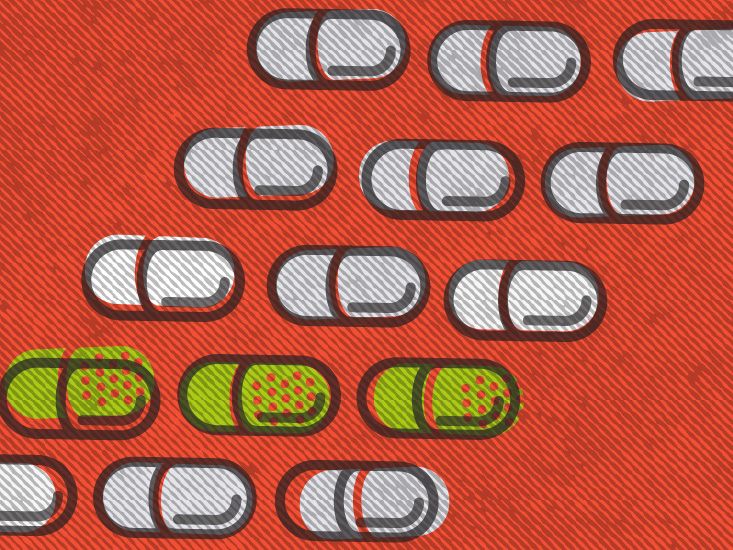Hey there! If you're like me, you've probably scrolled through countless headlines about intermittent fasting - one day it's hailed as the miracle cure for everything from weight loss to longevity, and the next day you're reading about potential health risks. It's enough to make your head spin!
Especially when it comes to your heart health, the confusion is real. I mean, we're talking about the engine that keeps you alive every single minute of every single day. So when I started diving into the research about intermittent fasting and heart health, I wanted to get to the bottom of whether this popular eating pattern is actually friend or foe to your cardiovascular system.
Here's what I discovered - and trust me, it's more nuanced than you might expect.
What Happens to Your Heart?
Let's start with the basics. When you practice intermittent fasting, you're essentially giving your digestive system regular breaks by restricting your eating to specific windows of time. The idea is that these breaks allow your body to reset, repair, and potentially tap into fat stores for energy.
But what does this mean for your ticker? Well, initially, the research looked promising. Studies showed that people who practiced intermittent fasting often experienced weight loss, improved cholesterol profiles, and reduced markers of inflammation - all positive signs for heart health benefits fasting could potentially offer.
However, things got interesting - and a bit concerning - with a major study presented at the American Heart Association's EPI|Lifestyle 2024 conference. This research, which followed over 20,000 adults, suggested something we hadn't seen before: an 8-hour eating window might actually be linked to a 91% higher risk of cardiovascular death according to the preliminary findings.
Yikes, right? Before you panic, let's break down what we really know.
Understanding the Science
The fascinating thing about our hearts is how they respond to different lifestyle changes. When you fast, your body goes through several metabolic shifts that can influence cardiovascular function.
For instance, many people who practice intermittent fasting do see improvements in their blood pressure and cholesterol levels. Your LDL ("bad") cholesterol might drop while your HDL ("good") cholesterol potentially increases. For those dealing with insulin resistance or prediabetes, the improved insulin sensitivity can be a game-changer for overall heart health.
But here's where it gets tricky. Not all intermittent fasting approaches are created equal, and the latest research is showing us that some methods might carry more risks than others.
| Fasting Type | Typical Schedule | Cardiovascular Benefits? | Risks/Drawbacks |
|---|---|---|---|
| 16/8 (Time-Restricted) | 8 hrs eating/16 fasting | Short-term positive markers | Potential risk (new study) |
| 5:2 | Normal 5 days / calorie-limited 2 days | Weight loss, improved markers | Difficult to maintain |
| Alternate-Day | Every other day fasting | Effective weight loss | High dropout rate |
What strikes me about this table is how the most popular method - the 16/8 approach - is suddenly under scrutiny. It makes you wonder: were we too quick to embrace something that seemed so simple and effective?
What Medical Experts Say
I reached out to some healthcare professionals to get their take on all this, and honestly, their perspectives were refreshingly balanced.
Dr. Parveen Garg from USC puts it perfectly: "If it helps you lose weight, great - but the long-term data just isn't there yet." This echoes what I've been feeling - that we're still in the early stages of understanding how intermittent fasting affects forging and heart disease risk over the long haul.
The experts are quick to point out that being overweight or obese poses a much greater threat to your heart health than intermittent fasting does. So if fasting helps you achieve a healthier weight, that's generally a positive thing for your cardiovascular system.
But - and this is a big but - certain groups need to be extra cautious. Children, teenagers, pregnant or nursing women, people with diabetes (especially those on medication), and individuals with existing heart conditions should definitely talk to their doctors before diving into any fasting regimen.
Why the Research Seems So Conflicting
I'll be honest - when I first started researching this topic, the conflicting studies drove me crazy. One day I'd read about miraculous heart health benefits, and the next day I'd see warnings about increased risks.
After digging deeper, I realized what's happening. Many of the earlier studies that showed positive results were smaller in scale and shorter in duration. They looked at immediate markers like weight loss and cholesterol improvements, which are certainly beneficial.
But the newer, larger population studies are taking a longer view - literally looking at death rates over time. A systematic review published in PubMed points out that while various forms of fasting do show short-term improvements in lipid profiles and insulin resistance, we're still missing that crucial long-term safety data.
Another issue I noticed is that many studies focus on when you eat but don't control for what you eat during your eating windows. It's like having a gym membership but never actually working out - the timing might matter, but it's not everything.
When to Be Extra Careful
I remember when my friend Sarah decided to try intermittent fasting without telling her doctor. She had type 2 diabetes and was on medication, but she figured since fasting was "natural," it would be fine. Big mistake.
She ended up with dangerously low blood sugar levels and had to be hospitalized. It was a scary wake-up call for all of us about how important medical supervision can be.
If you fall into any of these categories, please - have a conversation with your healthcare provider first:
- History of heart problems
- Diabetes, especially if you're on medication
- Pregnancy or nursing
- History of eating disorders
- Being elderly or having other chronic conditions
Also, pay attention to how your body responds. If you're experiencing persistent heart palpitations, extreme fatigue, dizziness, or mental fog, these could be signs that your current approach isn't working for you.
Making Smart Choices for Your Heart
Here's the thing I've learned through all this research: intermittent fasting isn't a magic bullet for heart health. In fact, some of the most reliable ways to support your cardiovascular system have nothing to do with when you eat:
- Maintaining a healthy weight through balanced eating and regular exercise
- Following a Mediterranean-style diet rich in plants, fiber, and healthy fats
- Getting regular physical activity (aim for that 150 minutes of moderate exercise per week)
- Managing stress and getting quality sleep
- Not smoking and limiting alcohol consumption
If you do decide to try intermittent fasting, here's what I've found works best for supporting intermittent fasting cardiovascular effects in a positive way:
Focus on nutrient-dense foods during your eating windows. It's not just about restricting time - it's about nourishing your body well. Pair your fasting with consistent physical activity, and most importantly, listen to your body.
The Bottom Line
So where does this leave us? Well, I think the honest answer is that we're still figuring it out. The research on intermittent fasting and heart health is evolving rapidly, and what we thought we knew yesterday might need updating tomorrow.
What I can tell you is that if you're considering intermittent fasting primarily for heart health benefits, there are probably safer, more evidence-based approaches that don't require restricting your eating window. That said, if you're someone who's struggled with weight management and intermittent fasting helps you maintain a healthier lifestyle, the potential benefits might outweigh the risks - especially with proper medical supervision.
The key is not to go it alone. Talk to your doctor, especially if you have existing health conditions. Start slowly and pay attention to how your body responds. And remember that sustainable heart health comes from a combination of factors - not just when you eat, but what you eat, how you move, how you sleep, and how you manage stress.
Your heart has been working tirelessly for you since before you were born. It deserves an approach to health that's evidence-based, sustainable, and tailored to your unique needs.
What's your experience been with intermittent fasting? Have you noticed any changes in how you feel or your energy levels? I'd love to hear your thoughts and experiences in the comments below.
And remember - whether you choose to fast or not, the most important thing is making choices that support your long-term health and wellbeing. Your heart will thank you for it.
FAQs
Is intermittent fasting good for heart health?
Intermittent fasting may offer short-term benefits like improved cholesterol and blood pressure, but recent studies suggest potential long-term risks, especially with time-restricted eating.
Can fasting increase the risk of heart disease?
Some research links certain types of intermittent fasting, such as the 16/8 method, to a higher risk of cardiovascular death. However, more long-term studies are needed to confirm these findings.
Who should avoid intermittent fasting?
People with diabetes, heart conditions, pregnant or nursing women, children, and those with a history of eating disorders should avoid intermittent fasting without medical supervision.
What are the best practices for heart-healthy fasting?
If you choose to fast, focus on nutrient-dense foods, stay hydrated, maintain regular exercise, and monitor your body’s response. Always consult your doctor first.
Are there alternatives to fasting for heart health?
Yes, maintaining a healthy weight, eating a Mediterranean-style diet, exercising regularly, managing stress, and avoiding smoking are proven ways to support heart health.
Disclaimer: This article is for informational purposes only and does not constitute medical advice. Always consult with a healthcare professional before starting any new treatment regimen.
Related Coverage
Find safe and effective exercises for heart disease that help older adults stay healthy, strong, and energized without overexertion....
Broken heart syndrome mimics a heart attack but heals quickly. Find key symptoms, diagnosis, treatment and recovery advice....
Heart valve regurgitation can cause breathlessness, fatigue, and swelling. Learn causes, symptoms, diagnosis and treatment options....
Wegovy shows potential to help Crohn's disease patients struggling with unintended weight loss, malnutrition, and cardiovascular risks....
Cut the Camzyos cost with smart insurance steps, $10 copay programs, free echo assistance and foundation grants—start saving now....
Is your heart struggling to pump blood effectively? Find comprehensive information on congestive heart failure, its symptoms, causes, and available treatments....
Find out how mitral valve prolapse presents, when to seek help, treatment options, and tips for living a healthy, active life....
Hypertrophic cardiomyopathy life expectancy is near normal; discover risk factors, survival, and treatments that extend life....
Find out the signs, causes, diagnosis and treatment for mitral regurgitation, plus lifestyle tips to support a healthier heart....
An aortic stenosis murmur indicates a narrowed valve. Find out its sounds, symptoms, diagnosis steps, and treatment paths....









